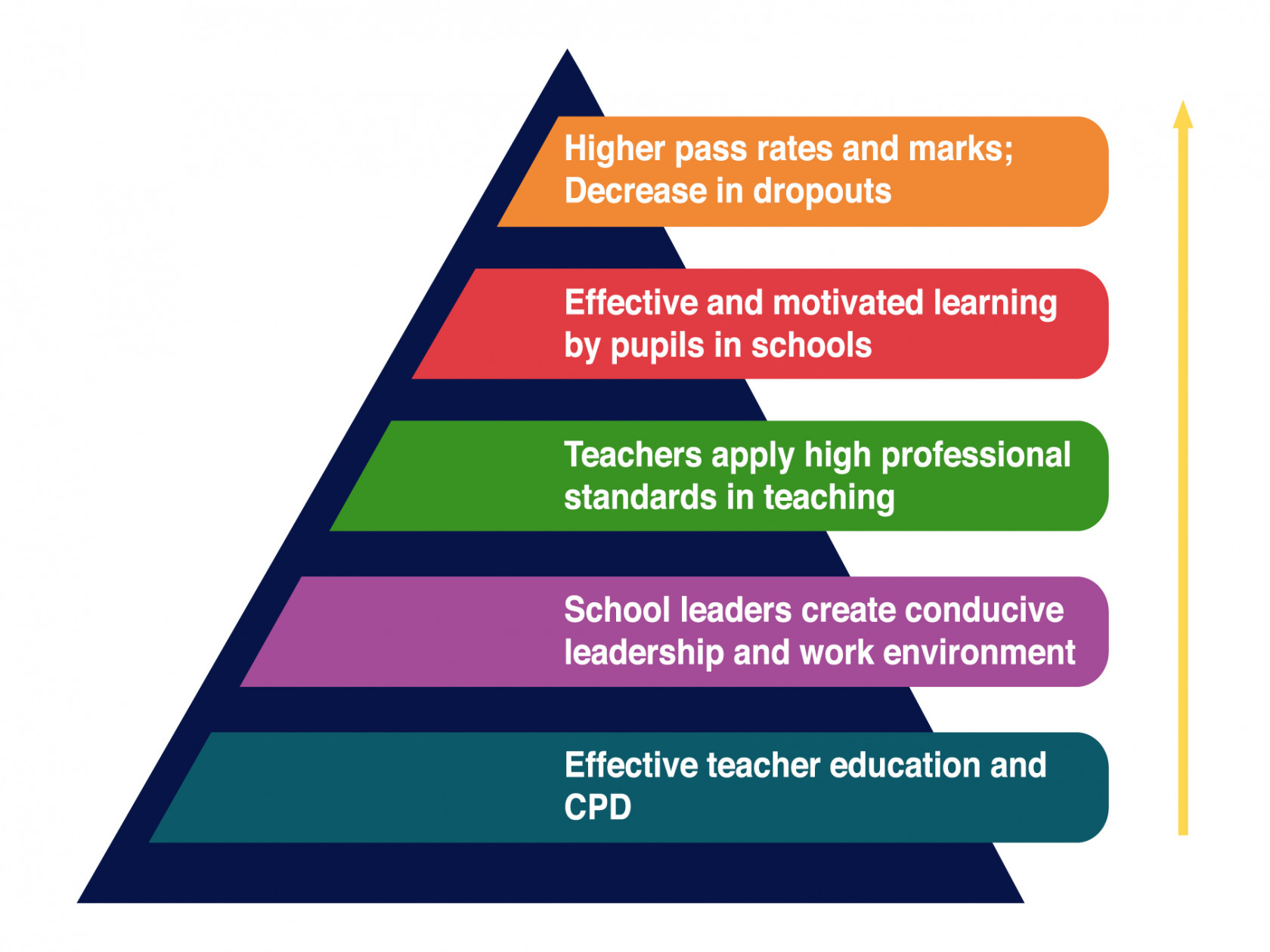Further reading: Introduction to Performance Management
Training as a teacher and participating in professional development do not guarantee high-quality performance in the classroom or lab. To perform well, teachers must: have an aptitude for teaching; feel good about their profession; be motivated to excel; receive the guidance they require; have easy access to teaching tools; work well with school leaders and colleagues; and have clear goals and targets to direct their work. This is what performance management is all about.
Improving the professional performance of teachers through performance management helps ensure government education policies are realised on the ground. A teacher’s individual targets and key performance indicators must lead up to and help to fulfil the goals of the educational policies of government, as should every consecutive level from teacher education upward.
The Professional Standards for Teachers and School Leaders (TSC, 2017) provide teachers and school leaders with clear guidelines on the standard of knowledge, practice and engagement for each of the four categories of teachers on the competency ladder - new teacher, proficient teacher, highly accomplished teacher and distinguished teacher.
A range of tools can be applied to improve performance, including:
- Strategic management, which sets targets for school performance
- Performance appraisal of teachers with concrete, relevant and measurable indicators
- Setting school targets with the teachers to encourage commitment
- Organising teachers in teams to focus on improving the quality of teaching in the school
- Provide encouraging and conducive modern school leadership
- Introduce more effective ways of working
- Supervise and guide teachers in their work
- Provide teachers with adequate teaching tools
- Provide teachers with a conducive work environment
- Stimulate teachers professionally and academically
- Motivate teachers through motivational measures
- Ensure job satisfaction, enrich jobs.
To sustain a high professional standard of performance requires a focussed and systematic approach. It is not enough to apply performance control measures, although they might help to identify and address low performance. Control can be detrimental to commitment and may defeat the purpose. It must therefore be balanced with measures to encourage and motivate teachers.
Performance management is the responsibility of school leaders. The TSC must ensure that school leaders are equipped with appropriate competencies in performance management, including conducting performance appraisals and enhancing the motivation of teachers.
Performance and Promotion
In modern merit-based HR, the performance of a teacher or school leader reflects on their chances for promotion. Teachers who wish to advance on a managerial path, a professional path, or an academic path, must make a conscious effort to demonstrate high performance in areas relevant for their career, and must develop the associated competencies through the means available to them. Continuous Professional Development is not just training. Experiential learning through processing work experience, on-the-job training, and self-directed learning can be very effective in developing a teacher’s skills.
The professional advancement of a teacher is recorded in the Teacher Portfolio, a tool for systematic career development.

